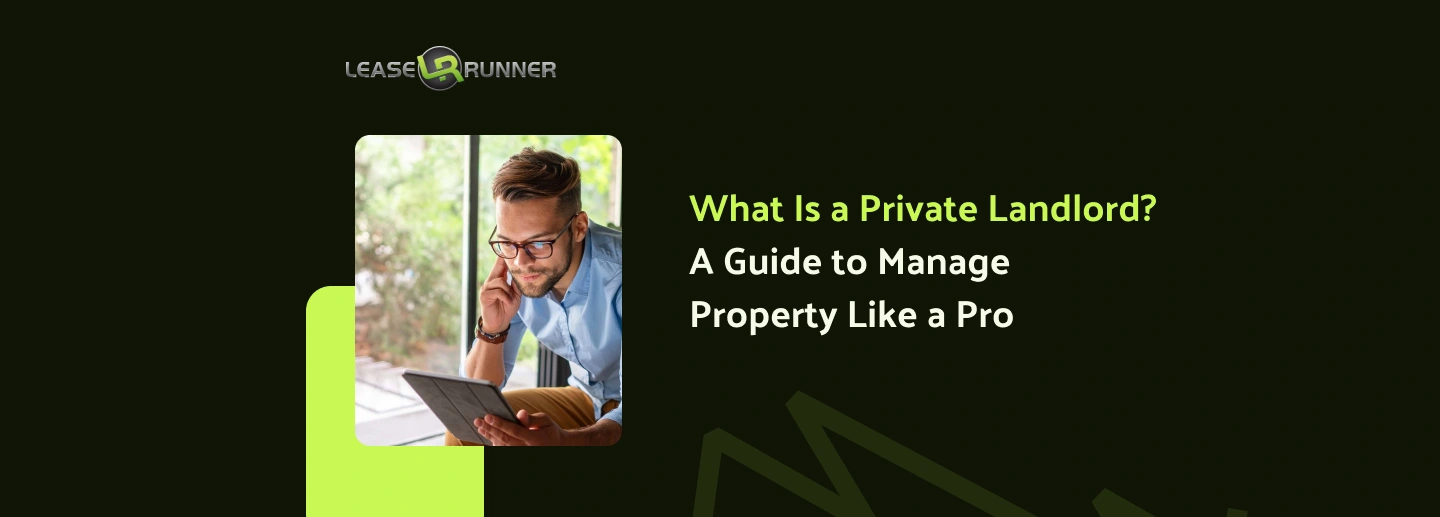There are problems that come with living in college housing. Students often have to deal with stringent landlord rules for tenants without knowing what their rights are. Knowing what these expectations are will help you prevent fights and legal problems in the future.
In most college towns, more than 60% of students live in private rentals. These homes usually have stricter requirements than conventional apartments. Landlords typically have rules that are meant to control how students act and live.

Understanding Your Lease Agreement
Most problems between tenants and landlords can be avoided by reading your agreement attentively. A lot of students sign without knowing what the important terms and conditions are. This mistake leads to fees and regulatory infractions that you didn't foresee.
Most student leases say that there can't be any noise between 10 PM and 8 AM. Property damage clauses often charge three times what it really costs to fix anything. Most guest policies only allow guests to remain for three nights in a row each month.
If you have joint and several liability, each roommate is accountable for paying the full rent. If one individual leaves town, the others have to pay their share. In most college towns, the average security deposit for student accommodation is between $500 and $800 per person.
Academic Support and Legal Resources
There are several problems with college living besides finding a place to live. Many students have a hard time balancing their schoolwork with their complicated rental agreements. A lot of people feel overwhelmed by legal papers and rules about housing.
Academic work requires good research and creative knowledge when dealing with landlord disputes. Most students get expert assistance for various legal and academic challenges. Students facing writing issues can use Edubirdie services regardless of their location or specific problems. The platform connects students with experts who understand both academic writing and legal documentation needs.
When landlords go too far, it's important to know your rights. Many institutions have legal aid clinics that help with housing problems. These materials help students understand and follow the complicated rules and laws about renting.
Essential Documents to Keep:
- Original signed lease agreement and all amendments
- Move-in inspection reports with photos
- All written communications with landlords
- Receipts for rent payments and deposits
- Records of maintenance requests and responses
Protip: Always communicate with your landlord in writing. Text messages and emails create a paper trail that can protect you in disputes. Verbal agreements are hard to prove in court.
Common Landlord Rules and Restrictions
Noise policies are the rules that are most often enforced in student housing. Fines for first-time offenders are usually between $50 and $100. If you break the rules more than once, your lease may end.
Pet restrictions apply to most student apartments, even emotional support animals. If you have a pet that isn't allowed, you'll have to pay a fine of $200 to $500 right once and then pay pet rent every month. Some landlords ask for extra security deposits for dogs that are allowed.
Parking regulations have severe rules about where guests can park and how many cars they can park. If you park without permission, your car will be towed at your expense, which usually costs between $150 and $300. A lot of houses only let one tenant park in one space.
Maintenance requests must follow certain steps to avoid fees. If you need emergency repairs after hours, they will cost more unless they are real emergencies. Most of the time, requests that aren't emergencies during work hours are free.
Subletting restrictions prevent students from renting to others without permission. If you sublet without permission, you could be evicted right away. Most agreements say that the landlord has to agree to any changes in tenants.
Property-Specific Rules You Should Know
There are typically rules for student housing that aren't in conventional rentals. The pool usually closes around 10 PM, and the rules are strictly followed. During holidays or test periods, the use of common areas may be limited.
There are rigorous rules about when to throw away trash, and people who break them will be fined. Many properties mandate that you use certain types of bags and pick them up on certain days. Most college towns now charge people $25 to $50 for breaking recycling rules.
Policies for using the Internet may slow down connections at busy times. Some properties don't let you use specific streaming services or gaming platforms. Using a VPN in buildings that are meant for students can break the rules of authorized use.
More and more student housing is requiring guests to register. Guests who stay the night often need to get permission ahead of time and prove who they are. To keep wear and tear to a minimum, several facilities limit the number of hours guests can stay each month.
Your Rights as a Student Tenant

Federal fair housing regulations protect students from being discriminated against because of their family status. Landlords can't turn down rental applications just because the people applying are students. For a comprehensive overview of prohibited practices, check out what landlords cannot do by state to better understand your specific protections and rights. Most state laws also say that it is illegal to discriminate against adults based on their age.
The rules about security deposits are different in each state, however they usually only allow deposits of one to two months' rent. Landlords have to give back deposits within 14 to 30 days after the tenant moves out. You need receipts and reasonable repair estimates to claim itemized deductions.
In most areas, privacy rights give tenants 24 to 48 hours' notice before their landlord can enter. This restriction does not apply in emergencies or when a renter asks for repairs. Landlords can't just come in to check on the property without telling you first.
Protip: If your landlord enters without proper notice, document the incident immediately. Take photos, note the time and date, and contact your local housing authority if it becomes a pattern.
Landlords must keep basic dwelling conditions up to habitability standards. Legally necessary facilities include heat, water, electricity, and a sound structure. Students can stop paying rent or break leases if there are major problems with the place they live.
Retaliatory eviction protection stops landlords from going after tenants who complain. You can't be evicted just because you file a complaint with the housing authority or ask for repairs. After a renter complains, most states safeguard them for 6 to 12 months.
Recent Legal Changes Affecting Student Housing
Starting in 2024, California's AB-2273 will limit security deposits to one month's rent. This reform makes it much cheaper for student renters across the state to move in. New York and Illinois are also working on similar laws.
The CDC's new rules of lead paint disclosures apply to student housing built before 1978. Landlords must give out EPA-approved brochures and disclosure forms every year. Fines from the federal government can be more than $37,000 per unit for breaking the rules.
New federal rules say that frequent housing breaches are a type of predatory lending. Consumer protection groups are paying more attention to homes that are geared toward students. The Department of Education now keeps an eye on housing complaints near colleges.
Handling Disputes Effectively
Most disagreements don't end up in court because of documentation. When you move in, take pictures of any damage that is already there. When you send an email, it leaves a paper trail that courts can use as proof.
State housing authorities will help tenants and landlords settle their disputes for free. When issues are mediated, more than 75% of the time they are resolved. Most of the time, these services fix problems in 30 to 45 days.
Most student housing problems that are worth less than $5,000–10,000 go to small claims court. Depending on the size of the claim and the state, filing fees range from $30 to $100. Students can speak for themselves without a lawyer.
Tenant unions give people who rent homes the power to negotiate with big property management businesses. There are active groups in a lot of college communities that keep an eye on landlords who break the rules. These organizations often work out better lease conditions and ways to settle disputes.
Preparing for Move-Out Success

You should plan move-out inspections for 1 to 2 weeks before your lease ends. Go attend these inspections in person and take pictures or videos of everything. Ask for written lists of any repairs that need to be made or deductions right now.
Protip: Schedule your move-out inspection during daylight hours when lighting is best. Bring a friend as a witness and use your phone to record the entire walkthrough with your landlord.
Professional cleaning services cost between $100 and $300, but they can save you money on bigger cleaning jobs. Focus on kitchens and bathrooms, where most of the deductions happen. A lot of landlords have cleaning businesses they like that promise to give back the deposit.
Small nail holes, minor scuffs, and patterns of wear on carpets are all normal wear and tear. After 2–3 years of renting, landlords can't charge for repainting. Tenant rights include worn door handles, faded light switches, and small scratches.
Most states have a time limit of 30 to 60 days for security deposit disputes. If landlords don't repay deposits correctly, file a complaint right away. Many states give double or triple damages for keeping a deposit wrongfully.
Knowing the guidelines your landlord has will help you stay safe and keep your money safe while you're in college. Know your rights, keep records of everything, and ask for help when you need it. These abilities can help you in future renting situations well after college.
Conclusion
Navigating landlord rules as a student tenant may feel overwhelming, but with the right preparation, it becomes much easier. By carefully reviewing your lease, understanding common restrictions, and keeping a clear record of all communications, you can avoid most disputes before they even begin.
Remember—tenant rights exist to protect you, and knowing them allows you to balance both your academic and housing responsibilities with confidence. Whether it’s handling deposits, resolving disputes, or preparing for move-out, being informed puts you in control. Stay proactive, stay organized, and you’ll not only safeguard your finances but also gain valuable life skills for future renting experiences with LeaseRunner.
FAQs
1. What are the most common landlord rules in student housing?
Noise restrictions, pet bans, parking regulations, subletting policies, and maintenance procedures are the most common. These rules are typically stricter in college towns to keep properties well-maintained and avoid disputes among tenants.
2. Can my landlord enter my apartment without notice?
In most states, landlords must provide 24–48 hours’ notice before entering unless it’s an emergency or you’ve requested repairs. If your landlord enters without proper notice, document the incident and contact your local housing authority.
3. How can I avoid losing my security deposit?
Always document the property’s condition during move-in and move-out, keep records of all maintenance requests, and follow cleaning and repair requirements. Normal wear and tear (like faded paint or minor carpet wear) cannot legally be deducted.
4. What should I do if I get into a dispute with my landlord?
Keep everything in writing, including emails and texts. Many disputes can be resolved through mediation services provided by state housing authorities, which settle issues faster and cheaper than court.







